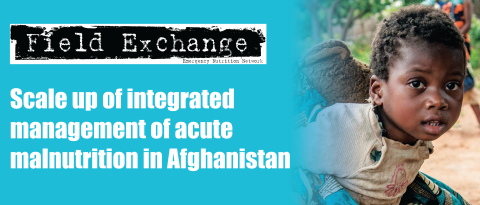Action Against Hunger Research for Nutrition conference, 2017
By Miriam Ait-Aissa and Stephanie Stern
Myriam Ait-Aissa is currently Head of Research and Analyses at Action Against Hunger – France (Action contre la Faim). She has been involved for over fifteen years in many multi-sectoral research programmes aiming at improving the treatment and the prevention of undernutrition.
Stephanie Stern leads the Action Against Hunger Knowledge LAB project. She previously worked at the Strategy and Analysis Department of Save the Children International and was a research fellow at IRIS, the French think tank on international relations and strategic affairs.
The fight against undernutrition is a protracted struggle. Although some very positive initiatives have been launched in recent years to tackle undernutrition worldwide, the global context is ever more challenging due to political conflicts, famines and disasters precipitated by climate change, leading to large-scale and often protracted humanitarian crises. While wasting and stunting are declining globally, both remain high; 155 million children are currently estimated to be stunted and 52 million wasted. Levels of hunger are also on the rise, with 815 million people reported to have suffered from hunger in 2017; 38 million more than the number reported in 2015 (FAO, 2017).
It therefore remains crucial for governments and the humanitarian community worldwide to identify and roll out effective, scalable interventions to tackle undernutrition. Due to the increasing complexity of different contexts, more analysis is required to truly identify the context-specific roots of undernutrition to better inform programming. We need to identify effective and scalable preventive interventions, as well as figure how to provide accessible, adequate care to undernourished children. Critically, health and other government systems must be strengthened in order to improve reach and ensure long-term sustainability.
Building the evidence base is critical to inform scale-up and mobilise the necessary resources; quality research is needed to identify effective solutions, demanded in a Lancet call for a stronger evidence base and research in humanitarian contexts (Lancet, 2017). Sharing best practices and lessons learned among practitioners working in the nutrition and health sectors, along with engagement of stakeholders from other relevant sectors, is a vitally important part of this process.
Action Against Hunger launched the Research for Nutrition conference in November 2016 (FEX, 2017) with the aim of enhancing knowledge of the latest available evidence on the identification of effective interventions to treat and prevent undernutrition. Based on its success, a second conference took place in November 2017 in the Pavillon de l’Eau in Paris. A call for abstracts generated 57 submissions; 17 were selected for oral presentation and 15 for poster presentation. A total of 28 high-level speakers participated in the conference, either presenting their work or to share lessons on specific topics during panel discussions. One hundred and thirty individuals attended the conference, representing 66 organisations. Nineteen individuals represented national or international institutions and donors; 82 s attended from operational agencies (humanitarian organisations), 31 from academic organisations and seven from private-sector bodies.
The oral presentations comprised a rich array of research around the key topics of undernutrition and mortality; diagnosis and treatment of undernutrition; effects of multi-sector interventions on nutrition and health; and effects of community-based initiatives to prevent undernutrition. The research agenda on acute malnutrition defined by No Wasted Lives (www.nowastedlives.org) was also presented. For the session on undernutrition and mortality, a meta-analysis of operational surveys to examine the relationship between drought and child mortality in Ethiopia was presented, followed by an analysis of associated mortality risk of in-treatment children by mid-upper arm circumference (MUAC) and/or weight-for-height z-score (WHZ). Research on the diagnosis of undernutrition included a presentation on new MUAC measurement devices. This was complemented by an ‘Innovation Lab’ session in which emerging research on three innovative ways of measuring nutritional outcomes was presented: the SAM photo diagnosis app, the Body Bioelectric Impedence Analysis (BIA) and the leptin test.
Nutrition security is a complex issue that requires coordinated efforts from different sectors, especially in emergency settings. Three presentations shared results and discussion from interventions aimed at assessing the effects of preventive interventions on nutrition and health outcomes.
The first panel discussion focused on the topic “How to overcome data management challenges in research in crisis contexts”. The second, entitled “How to improve the engagement of communities in research,” was dedicated to uptake of research by communities. Both sessions produced lively and interesting discussion that engaged the audience in debate. The conference evaluation confirmed that participants appreciated the level of exchange.
We are delighted to collaborate with ENN again to share outputs from the meeting. Summaries of presented research are included in this edition of Field Exchange, with links to video recordings where available. In some cases, peer review publication is pending so findings could not be published in this issue; these will be summarised in future Field Exchange issues.
The 2017 Research for Nutrition conference again proved highly successful, providing a valuable forum for exchange between researchers and programmers; we look forward to facilitating another in 2018.
Links to posters, presentation videos and interviews are available here.
For general information about the conference, visit this link or #R4NUT
References
FAO, 2017
FEX 54. Field Exchange 54, February 2017. www.ennonline.net//fex/54/acfspecialsection
Lancet, 2017. Evidence on public health interventions in humanitarian crises. The Lancet 2017. www.thelancet.com/journals/lancet/article/PIIS0140-6736(16)30768-1/abstract


